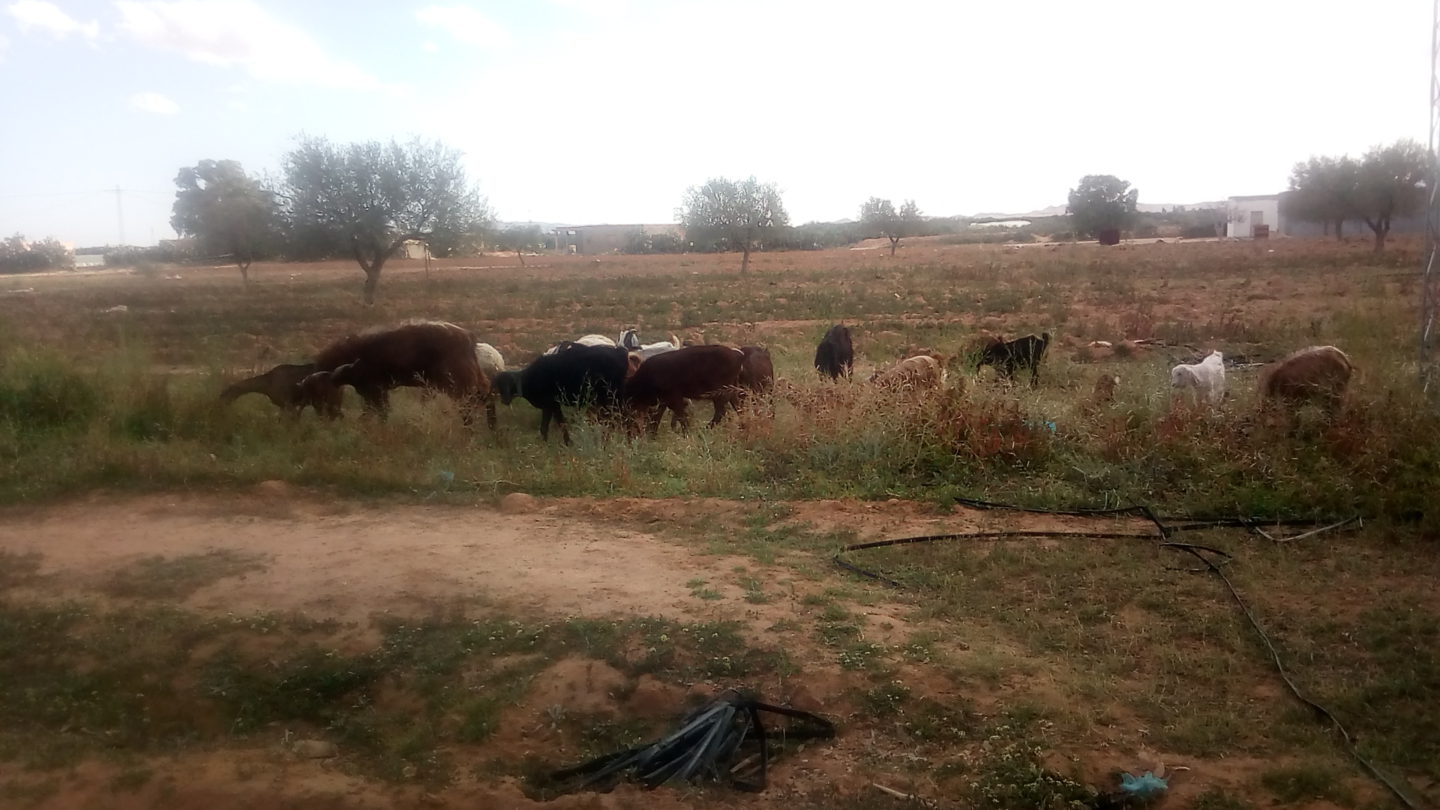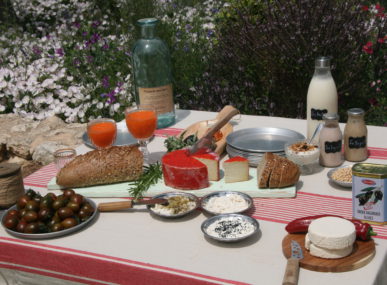Kaddoussi’s grand scheme evolved from his sheer interest in supporting rural women and the unemployed youth through rewarding collaborations. He calls it Tadhamen which means “solidarity” in Arabic.
Sidi Bouzid, Tunisia
Sustainable Food and Agriculture
Between social responsibilities towards the poor communities in Tunisia and his ardor to improve genetics and breeding of producing animals, Veterinarian Mongi Kaddoussi opted to start his much sought-after social initiative, Tadhamen. From there he showed interest in social and solidarity economy to serve his hometown Sidi Bouzid, and the surrounding indigent areas.
How collaborations with Tadhamen work:
World Bank reports concluded that Tunisia’s youth who are not in education, employment or training can be found in higher numbers in rural areas than in the cities. Almost one third of males and 50% of females are unemployed in the countryside.
“The project is social with a scientific side. We engage and collaborate with beneficiaries such as rural women and unemployed youth through providing them with high-yielding animals such as cattle and goats, without any financial contribution from their end,” says Kaddoussi.
“What we do through Tadhamen is weekly follow up and fund initiatives when needed,” he adds. Kaddoussi is hoping for his project to reach 300 beneficiaries throughout the next 2-3 years.
“Our collaborations are complete with the help of initiatives like Yunus Social Business (YSB)or Agence Française de Développement through funding between 3-10 herds of cattle or goats,” explains Kaddoussi.
What Tadhamen’s gains:
Since launching the project a year ago, Tadhamen managed to secure five beneficiaries with an estimated TND20,000 (€6,729) from YSB. “We are expecting further funding from YSB – a sum of TND200,000 (€67,286) in the very near future,” says Kaddoussi.
He also notes that Tadhamen can easily reach other corners of the country with solid advancement and funding. So far the collaboration is working with 50 producing animals as of December 8th, 2017.
“Currently YSB is awaiting positive results so we can move on to the next level of funding worth €67,286,” Kaddoussi states. “As for our rule, Tadhamen focuses on cross genetic breeding and matchmaking for better producing animals.”
What Kaddoussi works on in the process is retaining adaptable genotypes of cattle and goats for crossbreeding. An approach that is often adopted to bring forth important traits albeit differently distributed, such as the number of offspring per birth and per a lifetime.
This can take place through crossbreeding with local stock or exotics which will, later on, show variation in productivity. Basically, the selection process automatically allows animals with superior performance traits, keeping in mind that the breeds to be selected should bear a higher genetic variability and heritability. “We try to make sure any hidden diseases or unfavorable traits are left out,” adds Kaddoussi.
Tadhamen’s environmental role:
Goats are famous for their overconsumption of all kinds of plants. “They have no dietary preferences which makes them a danger to most plants,” Kaddoussi says. “Our solution would be through providing good concentrate feed plans for the herds done indoors (in barns), making them more profitable in the long run and stopping these herds from overgrazing.”
Another facet to Kaddoussi’s project is the fact that one of the least selected goat breeds – referred to it locally as the Shami or the Damascus goat– has been around the region for 3,000 years. “Farmers hardly crossbreed with this breed making it more susceptible to extinction, despite it being one of the best meat-producing goats out there,” Kaddoussi explains. “The breed is very well-known for its adaptability and low-maintenance and can easily be bred with other breeds like the Hijazi goat.”
Tadhamen’s ways of contributing socially and scientifically:
Generating revenues and seeking different ways of funding are two key factors in calling a business a success. For Kaddoussi, bearing the fruits of crossbreeding is one of three ways to self-fund Tadhamen and its beneficiaries. “Having high-producing animals ensures a steady revenue stream through selling their products which adds to the welfare of poor societies,” Kaddoussi says. “Additionally and scientifically, we work together with Institut National de Recherche Agronomique de Tunis. This comes in addition to a loan provided by the state worth TND430,000 (€144,681),” states Kaddoussi.
He further highlighted the social responsibility Tadhamen assumes: aiding the most vulnerable including rural women, the disabled, and the unemployed. “Tadhamen does that through building partnerships with development agencies such as Agence Française de Développement,” Kaddoussi says. He also added that within Tadhamen, there is a committee bent on identifying such opportunities.
Tadhamen has actually received TheSwitchersFund OSCE GEMS Award estimated at €15,000 grant as a prop to help Tadhamen along with five other winners with their sustainable technologies.
Kaddoussi goes on to mention that the long-term plan for Tadhamen is reaching 50,000 producing animals. “Our plans stipulate that beneficiaries are no fewer than 500, which in return will help 500 families, especially that the project is accommodating to the beneficiaries’ environments and capabilities,” he adds.
Photos: Courtesy of Tadhamen.







